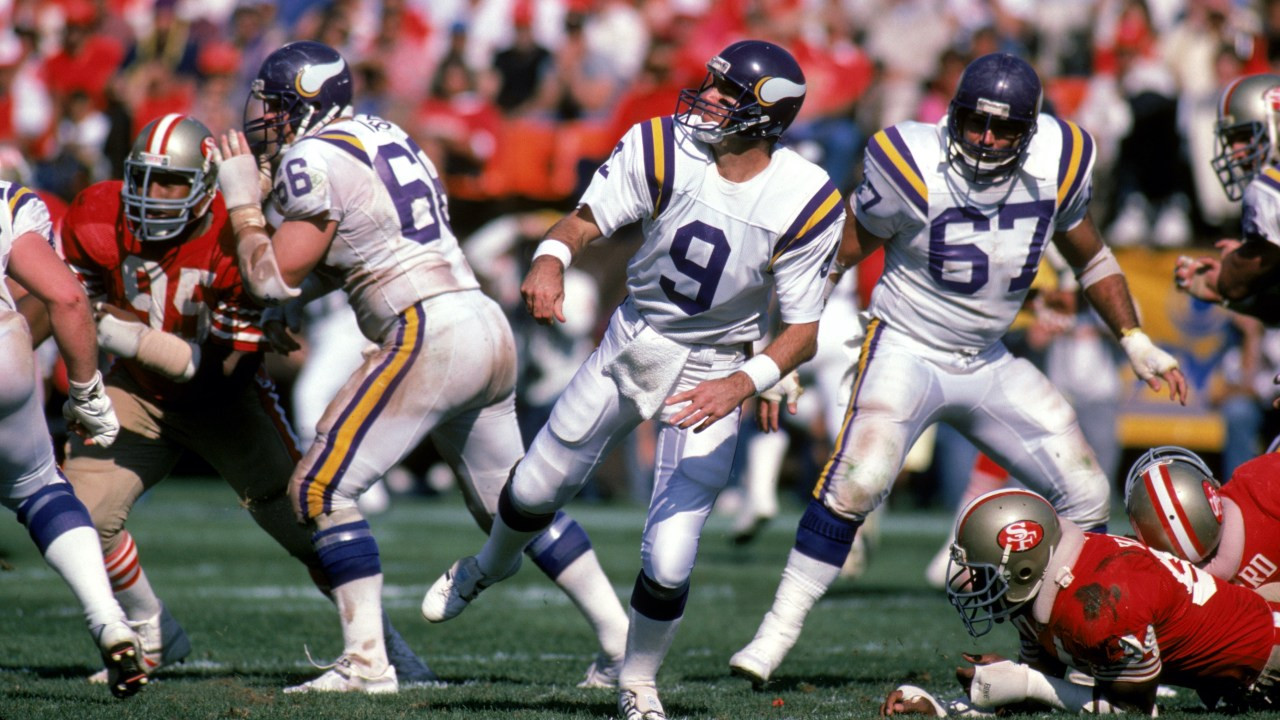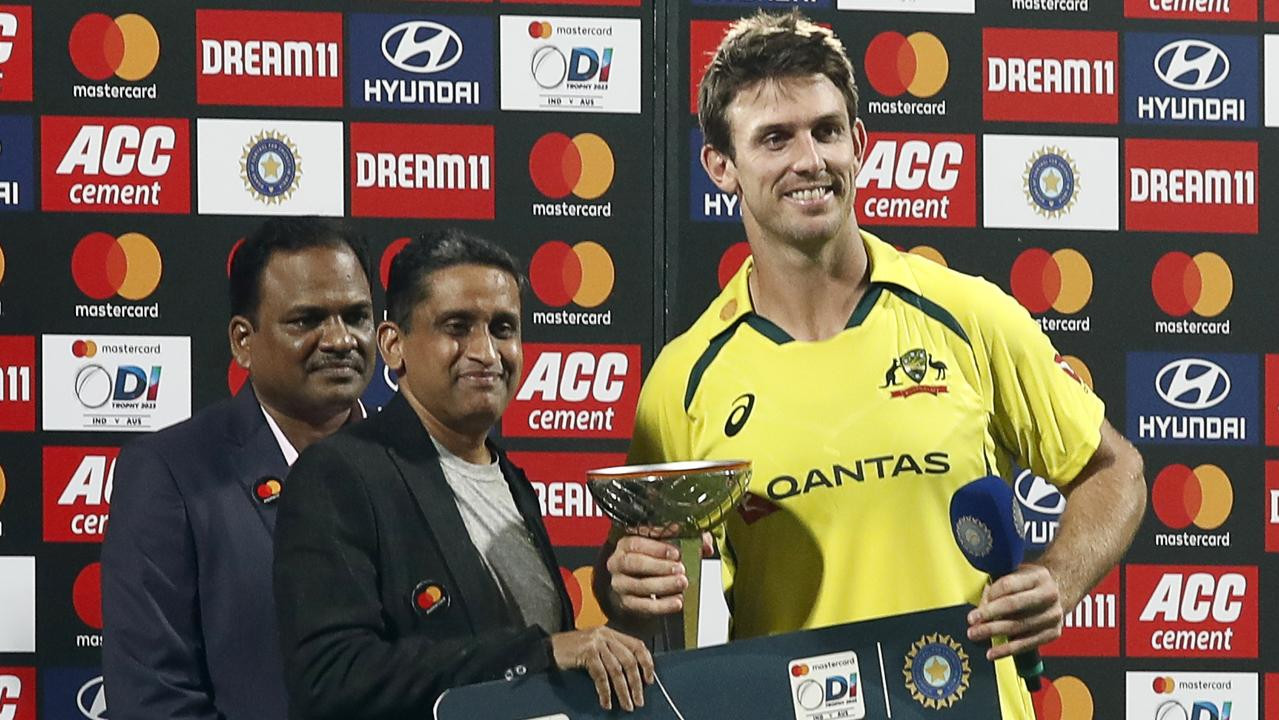Two former Vikings quarterbacks who played with a gunslinger’s mentality and took countless hits announced this week that they are battling serious conditions. How to view the price paid for football glory is an uncomfortable conversation.
At the end of a heartfelt and rather beautiful social media post on X on Wednesday during which Tommy Kramer announced he had been diagnosed with dementia, the former Vikings quarterback said this:
“Thank you for all the support and always remember, ‘We’re not here for a long time, we’re here for a good time.’”
The occasion for his announcement, which Kramer said came a year after his diagnosis, was a similarly grim revelation from another ex-Vikings quarterback. Brett Favre earlier this week, in the midst of a congressional hearing, said he has been diagnosed with Parkinson’s Disease.
Favre is 54 and Kramer is 69. Both former quarterbacks played with a gunslinger’s mentality and took countless hits to the head — repeated blows associated with conditions like the ones they are now battling.
Favre also battled a painkiller addiction while Kramer was known as a hard drinker during his younger days but says he has been sober for about a year since his diagnosis.
Both QBs played during an era when far less was known about the consequences of head trauma. As more information has come to light and even with rules and equipment designed to make a violent sport somewhat safer, anyone associated with high-level football has had to come to terms with an uncomfortable question: Why keep going with this when we know what might happen?
The answer is nuanced, but Kramer cut to the point in his long tweet, which I talked about on Thursday’s Daily Delivery podcast.
“Please, no sympathy. I’ve lived a great life and wouldn’t change a thing,” Kramer wrote in part of his message. “Nobody wanted to win more than me and I never gave up, and that’s exactly how I’m going to battle this. Football is the life we chose to live and sometimes stuff like this can happen.”
Violent sports continue, yes, because fans still want them to. A few players have walked away early.
But football continues to exist only because even with the knowledge of what might happen to them down the road, the ability to compete, achieve, win, earn millions, gain fame and live an amazing life for however long it lasts is enough to drown out the dark side of a distant future.
“It’s unfortunately part of our game,” Jets QB Aaron Rodgers said when asked about Favre, his former teammate. “That’s part of the risk of playing in the league, and we all in the back of our minds know that could be a reality at some point. We hope medicine at some point can catch up and either make the symptoms easier or eradicate some of these issues that we have.”
It’s an uncomfortable thought for a lot of us to digest. A lot of us are more risk-averse, aspiring to have good health for as long as possible — making trade-offs that might rob us of short-term good times when we are younger for the hope of being here a long time. Many of us earn our living with our minds more than our physical gifts. Almost all of us compete on a much smaller scale and earn far less.
Kramer played football the same way he has lived his life – and the same way many of us might want to live ours if we were being honest and had the chance: A little bit reckless, but with the understanding that the highest highs would make up for the lowest lows and leave space for no regrets whenever the end might come.
Kramer’s announcement follows Favre’s Parkinson’s diagnosis
Kramer’s announcement comes just a day after Favre revealed he had been diagnosed with Parkinson’s disease. Favre, who played for the Vikings from 2009 to 2010, made the announcement during a congressional hearing about the Mississippi welfare scandal in which Favre and several others have been accused of misusing funds from the federal Temporary Assistance for Needy Families (TANF) program.
Kramer’s message of gratitude and hope
Kramer’s post on X, formerly known as Twitter, was a message of gratitude and hope. He wrote, “Please, no sympathy. I’ve lived a great life and wouldn’t change a thing. Nobody wanted to win more than me and I never gave up, and that’s exactly how I’m going to battle this. Football is the life we chose to live and sometimes stuff like this can happen.”
Kramer also acknowledged the NFL’s efforts to protect players from head injuries, but he called for more support for former players who are battling illnesses.
“Financially I’m fine, but I know there are players out there who I played with that need all the help they can get. Unfortunately for me, the NFL will only try to help out with any of my medical bills and therapy what my personal insurance won’t cover. I’m hoping to bring some awareness so the NFL will be able to help others and future players who are battling illnesses like myself,” Kramer wrote.
Kramer’s legacy as a Vikings legend
Kramer played for the Vikings from 1977 to 1989, leading the team to a 54-56 record over 13 seasons. He is considered one of the most popular Vikings players of all time and was inducted into the team’s Ring of Honor in 2021.
A reminder of the price of football glory
Kramer’s diagnosis is a reminder of the risks that come with playing football. The sport is inherently violent, and players are constantly at risk of suffering head injuries. Although the NFL has made significant efforts to improve player safety in recent years, the sport is still incredibly dangerous.
The diagnoses of Favre and Kramer are a sobering reminder of the price of football glory. The sport is a great source of entertainment and pride for many fans, but it also comes with a significant cost to the players.
The ongoing battle for player safety
The NFL is currently in a constant battle to protect players from the long-term effects of head injuries. In recent years, the league has instituted new rules to limit helmet-to-helmet contact and has implemented new safety protocols to prevent and diagnose concussions. The NFL has also established a program to provide financial assistance to retired players who are suffering from the effects of head injuries.
However, the NFL’s efforts to protect players have been met with criticism from some players and their families. They argue that the league has not done enough to protect players from the dangers of the sport and that the league has downplayed the long-term risks of head injuries.
The diagnoses of Favre and Kramer are likely to fuel the debate over player safety in the NFL. The league will likely continue to be under pressure to do more to protect its players from the long-term consequences of head injuries, particularly as more former players come forward with diagnoses of dementia and other neurological conditions.
A lasting legacy beyond the gridiron
Despite the health challenges he faces, Kramer remains committed to his fans and to the game he loves. In his social media post, Kramer said, “It’s still all about the fans for me, as long as I’m able, I’m going to continue to be out there and travel to the small towns which I love most and meet the fans.”
Kramer’s legacy as a Vikings legend will endure, both on and off the field. He is a testament to the passion and commitment of players who have dedicated their lives to the game of football. While the sport may come with significant risks, players like Kramer demonstrate that the rewards can be just as significant.
The future of football and the question of its cost
The diagnoses of Favre and Kramer raise questions about the future of football. Will the sport continue to be as popular if fans are increasingly aware of the risks to players? Will the league be able to make the sport safer and more sustainable for players without diminishing the excitement and intensity that fans love? These questions are likely to be debated for years to come.
The answers to these questions will have a significant impact on the future of football. If the NFL can successfully address the concerns over player safety, the sport is likely to remain a popular and profitable endeavor. However, if the league fails to address these concerns, the future of the sport could be in jeopardy.

















